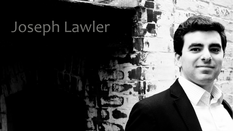I began reading My Father Left Me Ireland with apprehension. I’ve spent much of my life surrounded by Irish-American culture, and am acutely aware of the dangers of Irish-Americans projecting their desires or psychic needs onto Ireland and its history, and of the resentment that many Irish people feel toward members of the diaspora who romanticize modern-day Ireland.
But this book isn’t about that at all. It’s about the struggle of someone who grew up in a broken home and characterless place trying to find an identity for himself that makes sense of his background and the hardships and unfulfilled desires it imposed on him. That struggle is closely bound up in his relationship with his absent father, who happens to be Irish.
What Dougherty finds — a discovery narrated through letters to his father — is that identity and a sense of belonging, and the freedom that comes with them, are not things that are found or learned, are not the products of self-discovery.
Instead, Dougherty writes, “the only liberation worth having is one accomplished in sacrifice.”
That lesson is one that he learned through his own fatherhood. When he and his wife had a baby girl, he writes, it lent perspective to his hopes and desires for himself and his family. His beautiful description of the changes that his relationship with his daughter entailed for his overall worldview cannot be excerpted for a review. They have to be read in context.
“[W]hen we are forced to act on behalf of the future, the past can be given back to us as a gift,” Dougherty writes. That’s true of his relationship with his children, which makes sense of his background as a boy who grew up without his dad in the picture. It’s also true, he suggests, of the Irish nationalists, who, in effect, sacrificed the Irish identity into existence.
This short but powerful book isn’t about Ireland per se. It’s about identity, and how it is not given but bought.
One small note, particularly relevant to my interests: Dougherty says that the exurbs of Putnam County, where he grew up, was a James Howard Kunstler-style “nowhere,” featuring lawns but not real neighborhoods, many broken families, and car-only landscapes. He calls it an “architecture of fatherlessness.”
But this book isn’t about that at all. It’s about the struggle of someone who grew up in a broken home and characterless place trying to find an identity for himself that makes sense of his background and the hardships and unfulfilled desires it imposed on him. That struggle is closely bound up in his relationship with his absent father, who happens to be Irish.
What Dougherty finds — a discovery narrated through letters to his father — is that identity and a sense of belonging, and the freedom that comes with them, are not things that are found or learned, are not the products of self-discovery.
Instead, Dougherty writes, “the only liberation worth having is one accomplished in sacrifice.”
That lesson is one that he learned through his own fatherhood. When he and his wife had a baby girl, he writes, it lent perspective to his hopes and desires for himself and his family. His beautiful description of the changes that his relationship with his daughter entailed for his overall worldview cannot be excerpted for a review. They have to be read in context.
“[W]hen we are forced to act on behalf of the future, the past can be given back to us as a gift,” Dougherty writes. That’s true of his relationship with his children, which makes sense of his background as a boy who grew up without his dad in the picture. It’s also true, he suggests, of the Irish nationalists, who, in effect, sacrificed the Irish identity into existence.
This short but powerful book isn’t about Ireland per se. It’s about identity, and how it is not given but bought.
One small note, particularly relevant to my interests: Dougherty says that the exurbs of Putnam County, where he grew up, was a James Howard Kunstler-style “nowhere,” featuring lawns but not real neighborhoods, many broken families, and car-only landscapes. He calls it an “architecture of fatherlessness.”

